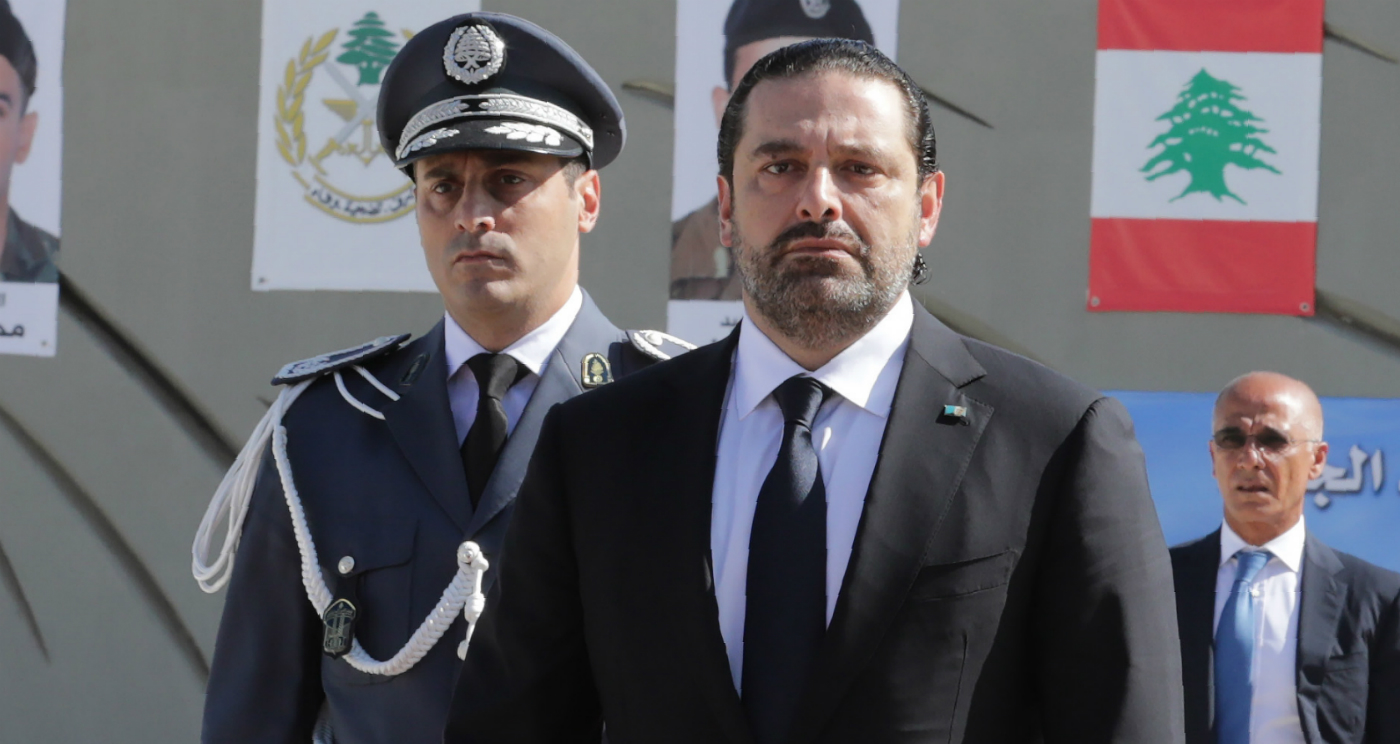Why has Lebanon’s prime minister resigned?
Saad Hariri stands down after failing to quell the anger of protesters

A free daily email with the biggest news stories of the day – and the best features from TheWeek.com
You are now subscribed
Your newsletter sign-up was successful
Lebanon has been plunged into deeper uncertainty after Prime Minister Saad Hariri announced his resignation.
Speaking after clashes at the mass protests that have called for an end to corruption and an overhaul of the ruling class, Hariri said he wanted to make a “positive shock” that served “the country’s dignity and safety”.
In a televised address, the prime minister said he had reached a “dead end,” adding: “For 13 days, the Lebanese people have waited for a decision for a political solution that stops the deterioration. And I have tried, during this period, to find a way out, through which to listen to the voice of the people.”
The Week
Escape your echo chamber. Get the facts behind the news, plus analysis from multiple perspectives.

Sign up for The Week's Free Newsletters
From our morning news briefing to a weekly Good News Newsletter, get the best of The Week delivered directly to your inbox.
From our morning news briefing to a weekly Good News Newsletter, get the best of The Week delivered directly to your inbox.
He has spent the last two weeks attempting unsuccessfully to placate demonstrators by offering reforms, including the scrapping of cabinet positions, and spending reforms. However, his moves failed to stem the tide of anger in a country that has one of the highest debt levels in the world, The Guardian says.
His resignation brings to an end the unity government that the three-time prime minister has led for less than two years.
Protesters in downtown Beirut cheered as Hariri announced his departure. However, many said that the prime minister’s move will not dampen their uprising. “Saad Hariri is only the beginning,” one told a local TV channel.
The protests “began against now-scrapped plans to tax WhatsApp calls”, The BBC says, but “quickly widened to target political corruption and economic turmoil”.
A free daily email with the biggest news stories of the day – and the best features from TheWeek.com
The militant group, Hezbollah, which has dominated the ruling coalition has taken a hard line against the protests. The group’s leader Hassan Nasrallah said last week that the protests were part of an international conspiracy.
Yesterday, black-clad men reportedly connected to Hezbollah destroyed a protest camp in central Beirut, setting tents on fire and beating anti-government demonstrators. Riot police and troops fired tear gas to try and separate the rival groups.
Assuming he accepts Hariri's resignation, President Aoun will have to consult parliament to form another government. Analysts predict that this will be a tricky process.
–––––––––––––––––––––––––––––––For a round-up of the most important stories from around the world - and a concise, refreshing and balanced take on the week’s news agenda - try The Week magazine. Get your first six issues for £6–––––––––––––––––––––––––––––––
-
 How the FCC’s ‘equal time’ rule works
How the FCC’s ‘equal time’ rule worksIn the Spotlight The law is at the heart of the Colbert-CBS conflict
-
 What is the endgame in the DHS shutdown?
What is the endgame in the DHS shutdown?Today’s Big Question Democrats want to rein in ICE’s immigration crackdown
-
 ‘Poor time management isn’t just an inconvenience’
‘Poor time management isn’t just an inconvenience’Instant Opinion Opinion, comment and editorials of the day
-
 Epstein files topple law CEO, roil UK government
Epstein files topple law CEO, roil UK governmentSpeed Read Peter Mandelson, Britain’s former ambassador to the US, is caught up in the scandal
-
 Iran and US prepare to meet after skirmishes
Iran and US prepare to meet after skirmishesSpeed Read The incident comes amid heightened tensions in the Middle East
-
 Israel retrieves final hostage’s body from Gaza
Israel retrieves final hostage’s body from GazaSpeed Read The 24-year-old police officer was killed during the initial Hamas attack
-
 China’s Xi targets top general in growing purge
China’s Xi targets top general in growing purgeSpeed Read Zhang Youxia is being investigated over ‘grave violations’ of the law
-
 Panama and Canada are negotiating over a crucial copper mine
Panama and Canada are negotiating over a crucial copper mineIn the Spotlight Panama is set to make a final decision on the mine this summer
-
 Why Greenland’s natural resources are nearly impossible to mine
Why Greenland’s natural resources are nearly impossible to mineThe Explainer The country’s natural landscape makes the task extremely difficult
-
 Iran cuts internet as protests escalate
Iran cuts internet as protests escalateSpeed Reada Government buildings across the country have been set on fire
-
 US nabs ‘shadow’ tanker claimed by Russia
US nabs ‘shadow’ tanker claimed by RussiaSpeed Read The ship was one of two vessels seized by the US military